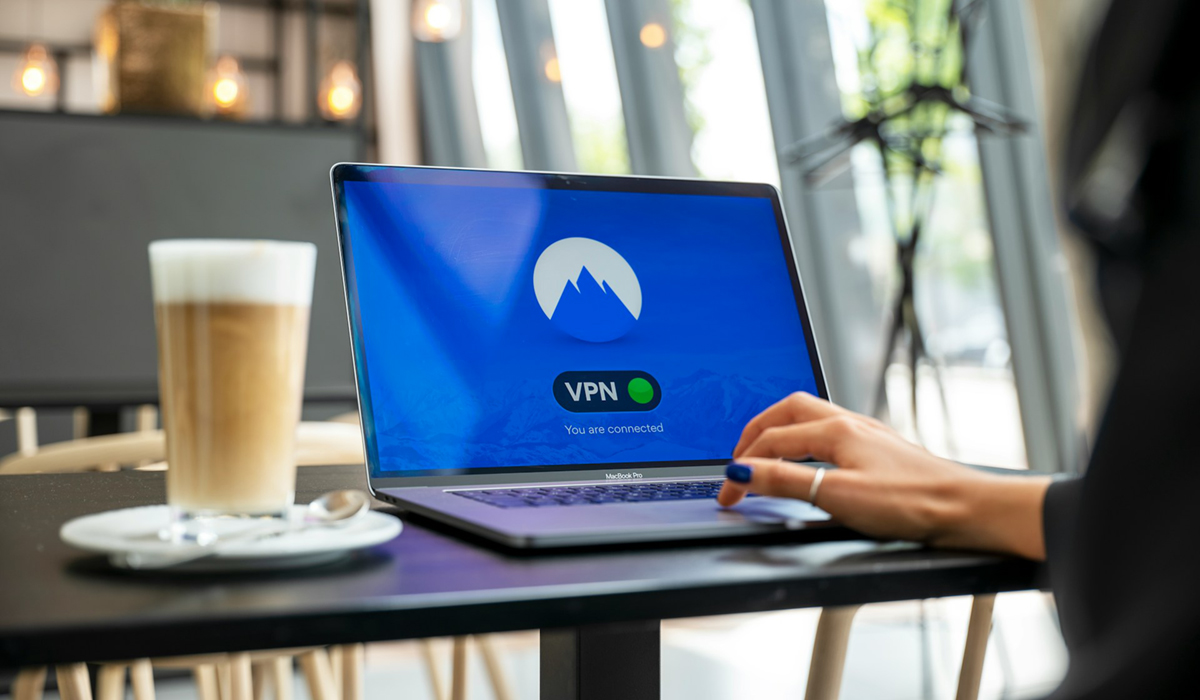
How safe is your online footprint? Personal security and privacy on the internet has never been more important as cyber threats evolve and concerns over data privacy continue to grow. With a Virtual Private Network (VPN), you can protect and enhance your online security, privacy, and freedom. There are very good reasons to explore using a VPN, from encrypting your personal information and protecting your online identity to bypassing geo-restrictions and enhancing your connection’s performance. Whether you consider yourself a casual surfer or dedicated professional, discover the benefits of using a VPN and why you need one.
What is a VPN and how does it work?
A Virtual Private Network (VPN) establishes a secure and encrypted connection between your device and a remote server, creating a private tunnel through which your data travels. This two-way encryption protects your online activities from malicious entities who seek to intercept or monitor what you’re doing. By masking your IP address and encrypting your internet traffic, VPNs provide privacy and security, particularly on public Wi-Fi networks. There are more benefits of using a VPN, including bypassing geo-restrictions and accessing content from anywhere in the world.

Benefits of using a VPN
From protecting your data to bypassing geo-restrictions, here are some of the key benefits of VPNs:
1. Enhanced security through encryption
A VPN enhances your internet security by encrypting your data traffic. This encryption protects sensitive information, such as passwords and banking details, by turning it into a secure code. Only your device and the VPN server can decode this code. Cybercriminals can’t access or tamper with your data when it’s encrypted this way, helping safeguard your personal information. While no VPN can guarantee 100% anonymity, they are very effective in establishing online privacy.
2. Mask your IP address
VPNs provide privacy and anonymity online by shielding your IP address, the unique identifier that links your device to your physical location. Accessing the internet through a VPN masks your actual location, making it appear you are elsewhere. This helps keep your identity and browsing activities private from websites, advertisers, and other parties who might track your behavior online.
3. Safe use of public Wi-Fi
Public Wi-Fi hotspots, while convenient, are notorious hunting grounds for cybercriminals. But with a VPN, you can browse with peace of mind, knowing that your data is shielded from potential threats. VPNs create a secure tunnel between your device and the internet, even on unsecured networks, making public Wi-Fi networks much safer to use.
4. Bypassing geo-restrictions and censorship
Another benefit of using a VPN is that it allows you to bypass geographical restrictions and censorship by connecting to servers in different countries. This feature enables you to access websites and media content that may be restricted or blocked in your own country, opening up a world of entertainment and information at your fingertips.
5. Prevent bandwidth throttling
ISP bandwidth throttling can affect how quickly you can stream, download, and access content online. A VPN helps prevent bandwidth throttling by masking your internet traffic, which prevents your ISP from seeing what services you’re using and potentially slowing down your connection.
6. Browse from home while you’re abroad
If you like to travel, a VPN can be particularly beneficial when it provides the ability to connect as if you’re browsing from your home country. This can enable access to local news, entertainment, and services that might otherwise be inaccessible, making it feel like you’re at home even when you’re on the other side of the world.
How to choose the right VPN for you

Choosing the right VPN is essential to ensure you get the security and performance you need. Here are some crucial factors to consider before selecting a VPN plan:
- Privacy: Look for VPNs that offer strong encryption, like 256-bit encryption, a no-logs policy, and leak protection. These features ensure that your online activities and data remain confidential and safe from external threats.
- Speed and performance: VPN services can vary in speed, so it’s important to choose a provider that won’t slow your connection and maintain fast speeds even when traffic is encrypted. This is crucial if you’re using the VPN for streaming, gaming, or downloading large files.
- Server network: The number of server locations can influence your VPN’s performance and the extent to which you can bypass geo-restrictions. A VPN with a wide range of server locations offers more options and ensures better speeds by connecting to a server that is closer to you.
- Compatibility: Ensure the VPN is compatible with all your devices and operating systems. Most premium VPNs offer apps for several platforms, including Windows, macOS, iOS, Android, and sometimes even extensions for web browsers.
- Cost and value: Compare pricing plans among different VPN providers to find one that fits your budget while still offering good value. Consider if the VPN offers features that justify the cost, such as additional security tools or simultaneous connections.
NordVPN, Bitdefender, and McAfee offer VPN plans on either a monthly or annual basis. Think of your specific needs, such as streaming or gaming, and compare plans based on the factors above to select the right one for your needs.
Combine a VPN with antivirus software for enhanced protection
While using a VPN encrypts your internet traffic and helps protect data from interceptors during transmission, it doesn’t protect your device from malware. Antivirus software, on the other hand, actively scans, detects, and eliminates virus threats before they can do damage. Regularly updating both your VPN and antivirus software also ensures you are protected against the latest threats. For the best overall protection, it’s a good idea to use both a VPN and antivirus software.
Enhance your security online with a VPN
The benefits of using a VPN are wide-ranging. VPNs protect your personal data, enhance your online privacy, prevent unauthorized access, and ensure you can access the internet freely and safely from anywhere in the world. Whether for personal reasons or professional requirements, investing in a VPN is a wise choice for anyone looking to secure their online life. Learn about more cellphone safety and security tips in this article.
This article was drafted using AI technology and then reviewed, fact-checked, and revised by a member of our editorial team.





